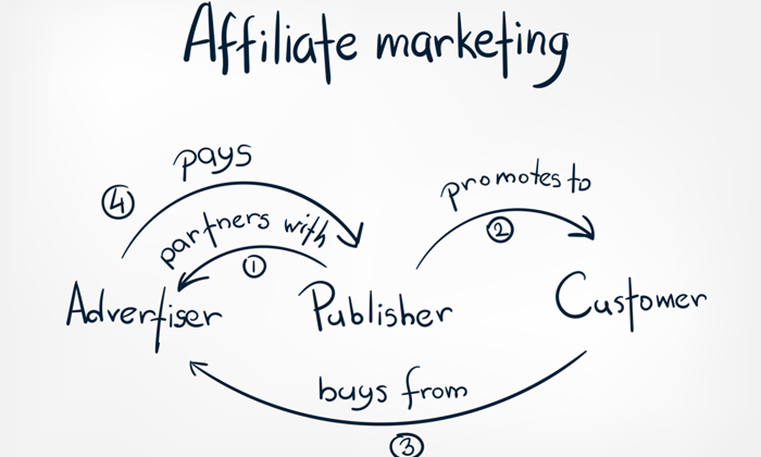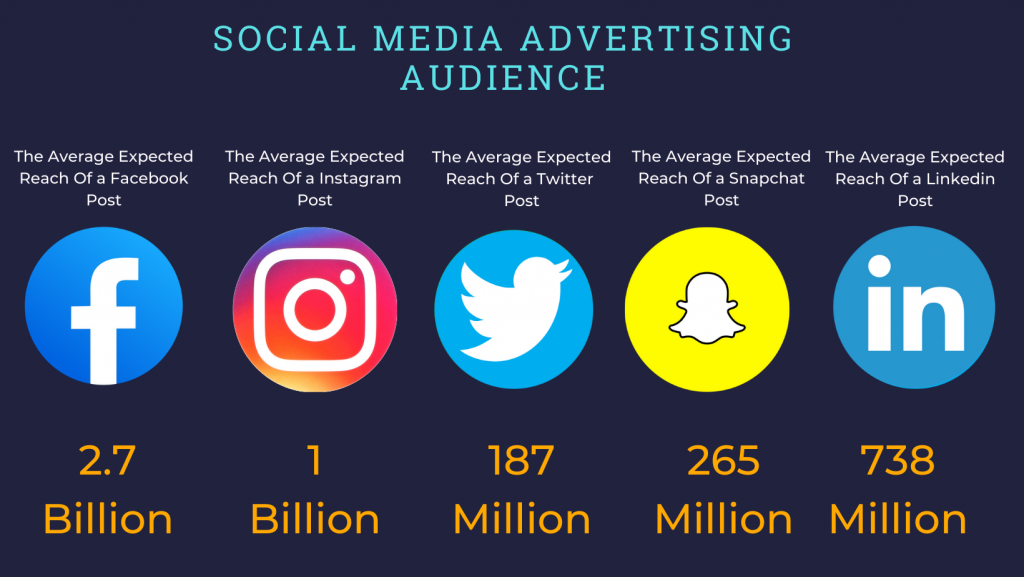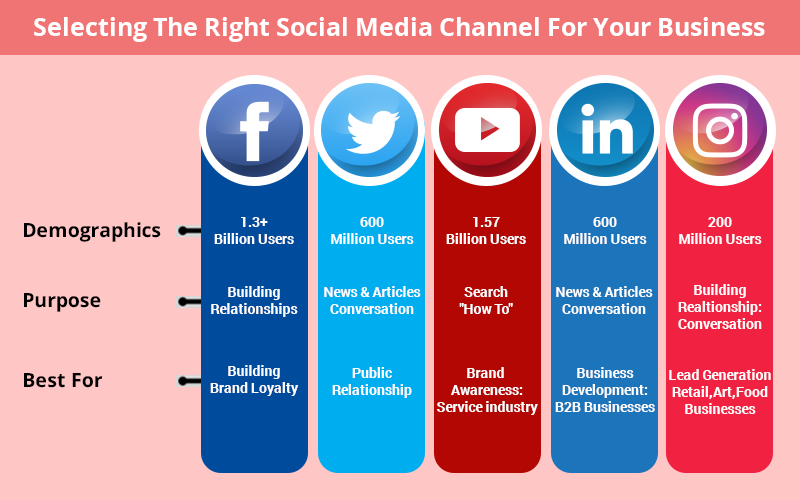How to Leverage Social Media for Affiliate Marketing?

Affiliate marketing is constantly evolving with time, and with the advent of social media platforms, it has taken a whole new avatar. Earlier, it was usually restricted to endorsing others’ products in your blog post or through email marketing. But now, it has expanded to new channels for reaching out to your target audience.
Today, affiliate marketing covers everything from recommending products in blogs, paid social posts, and coupon codes from influencer promos to simply sharing referral links among friends. Affiliate marketing is, thus, making it easy to promote your business online.
What is Affiliate Marketing?
Affiliate marketing is a marketing strategy of promoting others’ products in return for a commission each time a sale happens through your promotion. You must have come across terms like ‘affiliate links’ or ‘sponsored posts’ on many websites and blogs. These are some ways of promoting the products.
People are making a lot of money these days through affiliate marketing. If you’re also interested in the same, you can join any affiliate program or network. All you have to do thereafter is start creating content using those unique product links given to you and post it on as many online platforms as possible.

Affiliate marketing majorly has four major components:
- The Merchant
Also known as the seller, the brand, or the retailer, it is the one whose product is promoted. It can be a large business or a startup. It can either have its own affiliate program or be a part of a network.
- The Affiliate Marketers
Also known as the publisher, affiliate marketers are the ones who promote and market the merchants’ products. Their goal is to convince the target audience of the value of the affiliate products, so they end up purchasing them. This can be done in different ways by affiliates. Over the past few years, social media has emerged as the ideal platform for affiliate marketing.
- The Consumer
The consumer is an important element in this process since only the affiliates get to make money when a sale happens. So, the entire incentive behind promoting the affiliate product is when a customer makes a purchase. The affiliates, thus, try to reach out to them through multiple channels.
- The Affiliate Network
A network acts as an intermediary between the merchant and the affiliate. While you could always deal with the merchant directly, being a part of a network brings more seriousness and trust in the whole process.
Link Between Social Media & Affiliate Marketing
Social media for affiliate marketing has come as a blessing. It has given an excellent opportunity to affiliates to connect with billions of people in a small span of time. For instance, Instagram, one of the most popular affiliate marketing platforms, boasts over 1 billion users as of 2021. If utilized effectively, affiliate marketers can earn huge sums of money on these platforms.
It is a no-brainer that social media is the ideal place to build an audience and reach out to them in the quickest way possible. Moreover, it also allows you to segment users easily and targets your ads towards a particular category of users.
Social media influencers are on the rise. They are individuals with a huge following who focus on specific areas, such as beauty, fashion, or fitness. These influencers can become affiliates and utilize their large follower base to sell products and earn commissions.

The following are some reasons why social media is the right starting point for affiliate marketing:
- It is available free of cost
Social media does not charge any fee from its user, at least for the basic features. Anyone can create an account and start using the platform. However, it takes consistent efforts and time to build a following on social media. But, once you have that, you can leverage it by marketing products and earning money.
- Most people are on social media
Almost everyone has a social media account today. Most people have accounts on more than one platform. Therefore, social media is a suitable place to find your audience and promote your products to them.
A lot of marketing input is received from people’s online conversations and posts. Most companies run their entire marketing campaign on social media to utilize their large user base.
- It gives them the freedom to manage your own account
For most people, scrolling social media is a fun activity. It is easy to use and understand. A person can manage his social media profile on his own and keep on updating it as and when desired.
- Link placements are easy
It is quite easy for affiliates to post links on social media platforms. On the contrary, some websites might remove your links if they find them too promotional or not in line with the content. But, there is no such restriction on social media. You can place as many links as you want. Just make sure that these links are actually useful for your followers to build trust.

Using Social Media for Affiliate Marketing
Affiliates can use several channels of communication to promote products. They could write blogs recommending your product or post a video on their YouTube channel or social media page. Since here, our focus is on leveraging social media for affiliate marketing, we will discuss how to achieve that.
You can follow the below-mentioned steps to get started with affiliate marketing on social media:
- Set up your affiliate program
A brand should have an affiliate marketing program in place that can fit its budget and attract top affiliates simultaneously. Decide on the commission affiliates will earn on a sale. It can be a specific percentage of the sale or a fixed rate.
Also, specify which actions of affiliates are qualified for a commission. For instance, a conversion can include a free trial, an email sign-up, or subscription fee payment apart from the sale of products by customers.
Many social media affiliate programs and networks act as an intermediary between affiliates and affiliate programs that promote products on social media.
Here is an example of a social media affiliate program.

- Choose the right social media channel
You should know which social media platform is most beneficial to achieving your affiliate marketing goals. You can start by researching the more popular platforms like Facebook and Instagram, but don’t forget to utilize the more topic-focused platforms such as Quora or Pinterest.

There are mainly three things to consider to find the right platform for you:
1. Your sales process
If you’re a B2C company, your sales process is short with just convincing the customers to buy your product. However, in the case of a B2B firm, the sales process can be longer with more decision-makers involved. This factor will affect your choice of platforms.
For example, platforms like Instagram and Pinterest are great for B2C companies as brands can easily showcase their products on these image-centric platforms. B2B companies should use platforms like LinkedIn and Facebook to share in-depth articles and reach out to industry-focused groups.
2. Your target audience
Each platform has different demographics. Gen Z and millennials are most active on Instagram and Twitter. LinkedIn is being used by professionals, and Facebook has almost everyone on it. You should know on which platform your target audience is most active. This will help you reach out to them with the right content and engage effectively. This way, you can also find affiliates that are the right fit for your products.
3. Your ad type
Different social media platforms have different approaches to creating and sharing content. Depending on the type of content most suitable for you to best engage your target audience, you can choose the right platform.
There are different types of ad content that can be produced, such as posts, images, videos, reviews, tutorials, tweets, and Pinterest pins.
Find the best ways to convey your product’s idea to the audience. If your product is best shown in action, you can create tutorials on YouTube or Facebook.
- Find affiliates to promote your products
A great benefit offered by social media is that brands get to find and partner with the most appropriate affiliates to promote their products.
Some key affiliates available on social media are:
1. Influencers
Influencers can be the most useful affiliates since they can reach wide audiences and boost brand awareness. The best platforms for influencers to operate are Instagram and YouTube. You can search for these influencers on social media by using hashtags and trends to find people posting content related to your brand.
When looking for affiliates, look into aspects such as the quality of their content, their following, and their followers’ engagement.
2. Micro-influencers
They are also influencers but on a smaller scale, with the following somewhere between 1000 to 100,000. They offer the benefit of a highly engaged following and more flexibility to brands.
3. Industry groups
Social media platforms like Facebook and LinkedIn have online communities in the form of groups, pages and forums focused on a particular sector or industry. These are perfect spots to find affiliates and promote relevant content.
4. Social media mentions
Keep track of all the social media mentions about your brand. This will give you a fair idea of who is talking about your brand and the type of content your audience is engaging with.
- Create relevant and engaging content
The best thing with affiliate marketing is that the audience gets various content created by affiliates catering to different areas. Affiliates can customize the content they create to promote your products somehow. Social media is a space where people are willing to engage, so make sure that you create content worth engaging in.
- Keep on updating your affiliate program
Since social media is so dynamic in nature, you should keep an eye on the current trends to keep your affiliate program relevant to current times and appealing to the affiliates. Also, keep looking for new affiliates and opportunities on new social media platforms to expand your affiliate marketing program.
Social media and affiliate marketing go hand-in-hand. By leveraging the power of social media for affiliate marketing, both brands and affiliates have a lot to gain. Affiliate marketing provides broader exposure, higher engagement, more leads, and potentially higher sales. If you’re new to this, set up an affiliate marketing program today and see your business grow exponentially.
FAQs
Affiliate marketing is an arrangement between a merchant and an affiliate. The affiliate promotes the merchant’s products, and in return, he gets to make money in the form of commissions for every sale made through him. In most of these arrangements, an affiliate platform or network acts as an intermediary between the merchant and the affiliate.
Some of the best social media platforms for affiliate marketing include Facebook, Instagram, Pinterest, LinkedIn, Twitter, and Snapchat.
Affiliate marketers and brands are leveraging social media to promote products and boost brand awareness. Social media is available free of cost and is user-friendly. Almost every person is active on one or more social media platforms, making it the ideal place for brands to reach out to their target audience
The brands can leverage social media for affiliate marketing by following the tips mentioned below:
Set up an affiliate marketing program or join any social media affiliate programs.
Decide the right social media platform for your brand, depending on where your target audience is most active.
Look for affiliates suitable for promoting your products on social media. Nowadays, brands are partnering with influencers because of their large follower base.
Create content that offers value to the audience and keeps them engaged. Only posting promotional ads will not help in building an audience.
Keep growing your affiliate program by adding new affiliates and trying out new platforms.
Latest Blogs
Explore how Google’s 2025 AI search updates triggered ranking chaos. Learn actionable strategies to adapt your SEO for AI Overviews, zero-click searches, and SERP volatility. Stay ahead now.
Learn how to rank on AI search engines like ChatGPT, Perplexity, and Gemini by optimizing your content for authority, structure, and relevance. Stay ahead in AI-driven search with this strategic guide.
Explore the best healthcare SEO services for your medical practice. Improve online visibility and effectively reach more patients in need of your services.
Get your hands on the latest news!
Similar Posts

Affiliate Marketing
5 mins read
7 Free AI Tools for Blog Writing Every Marketing Pro Should Use

Affiliate Marketing
8 mins read